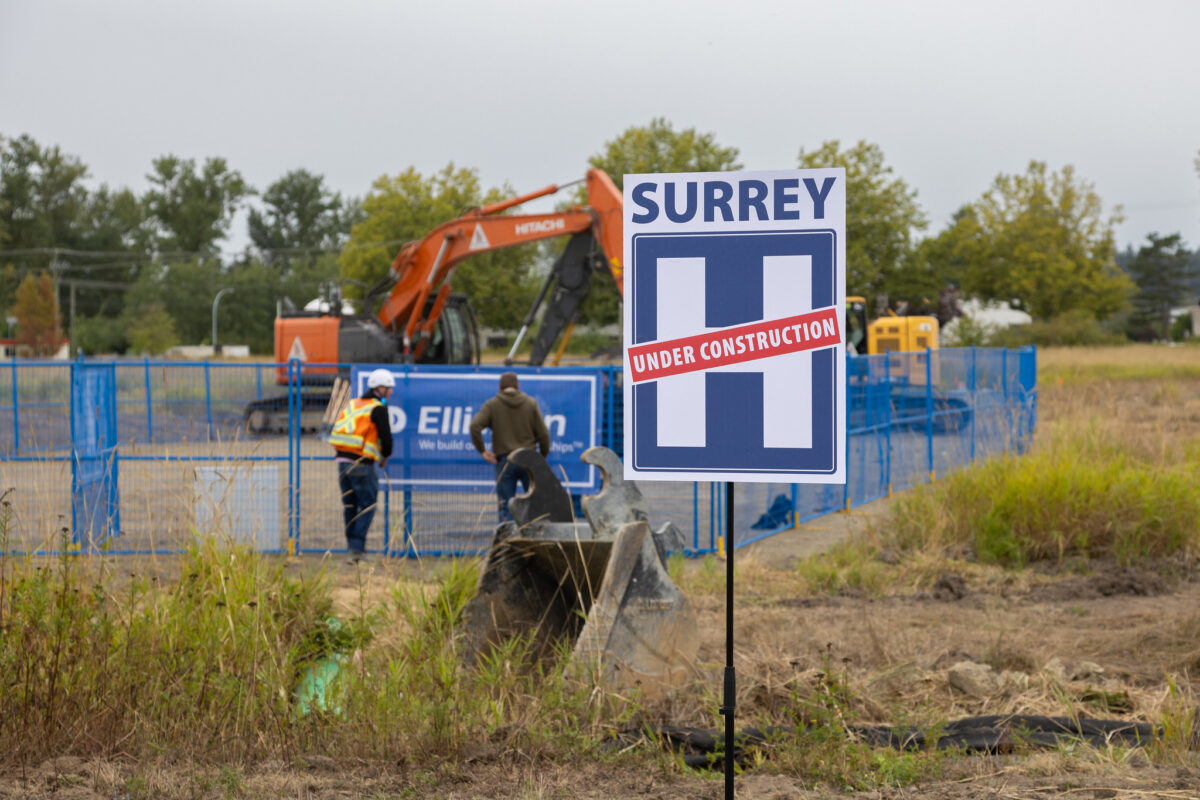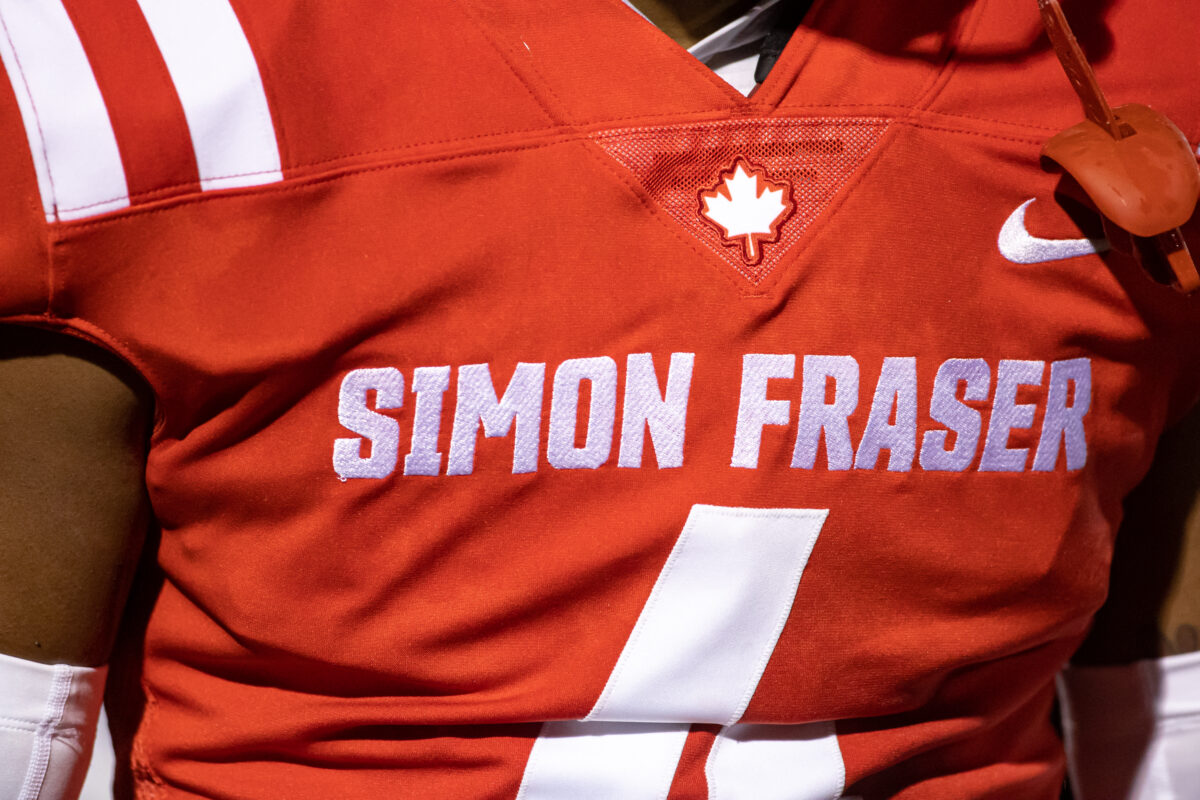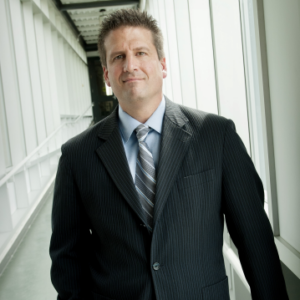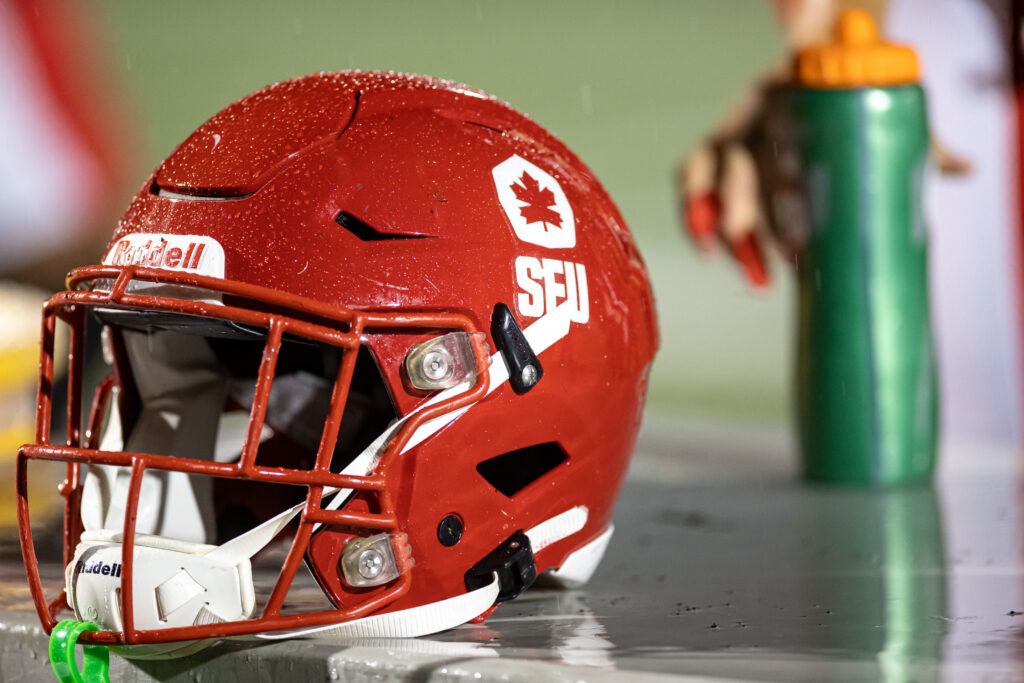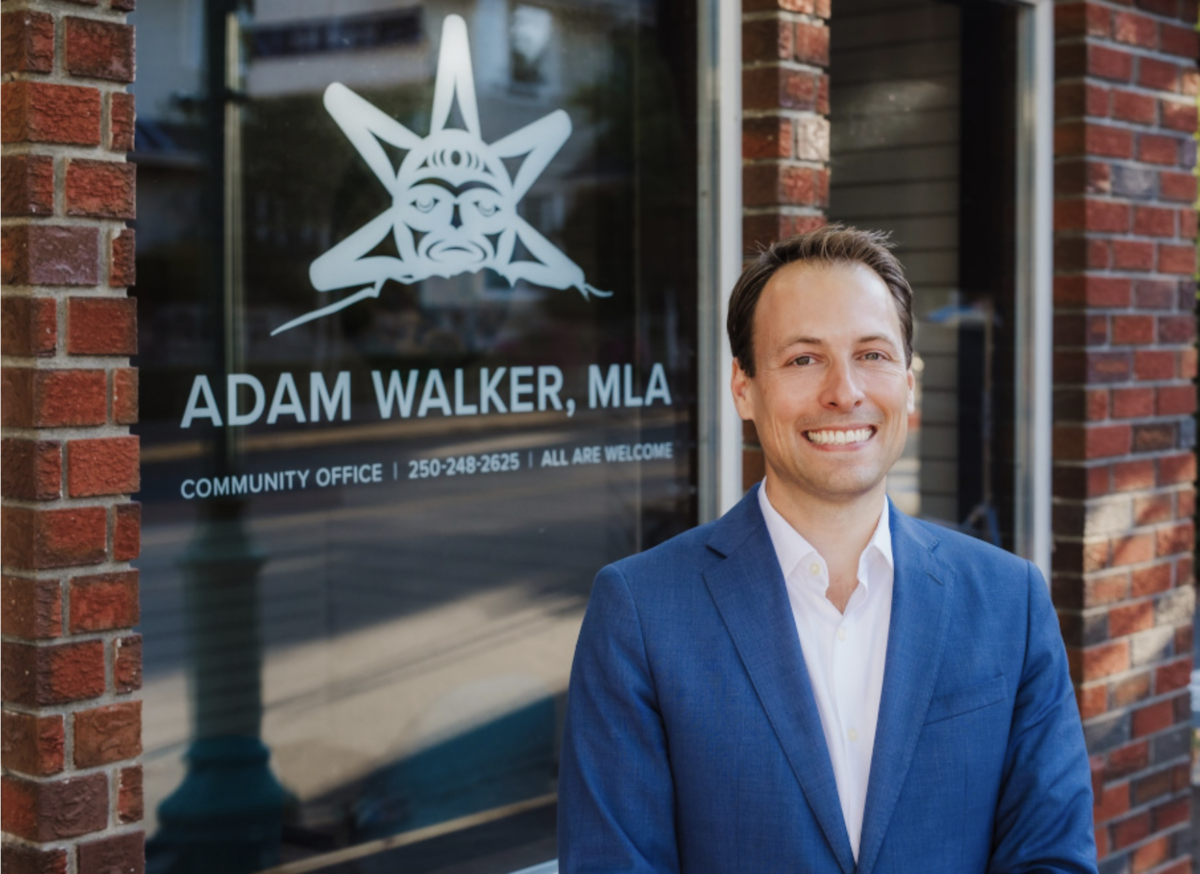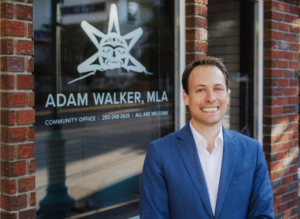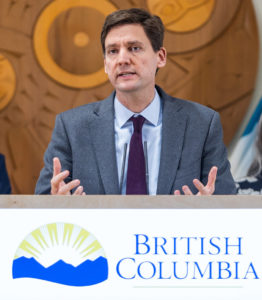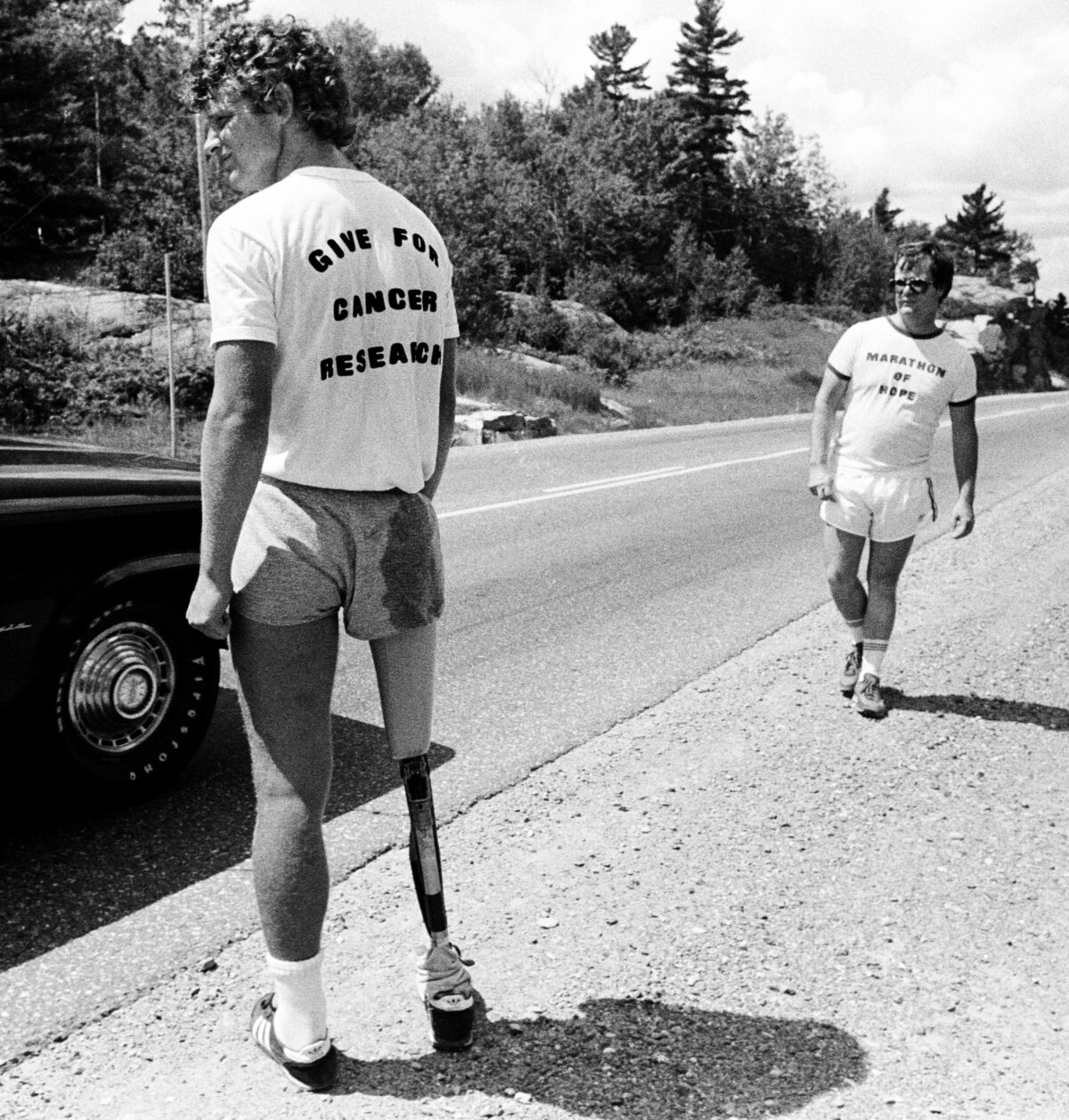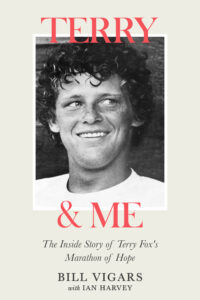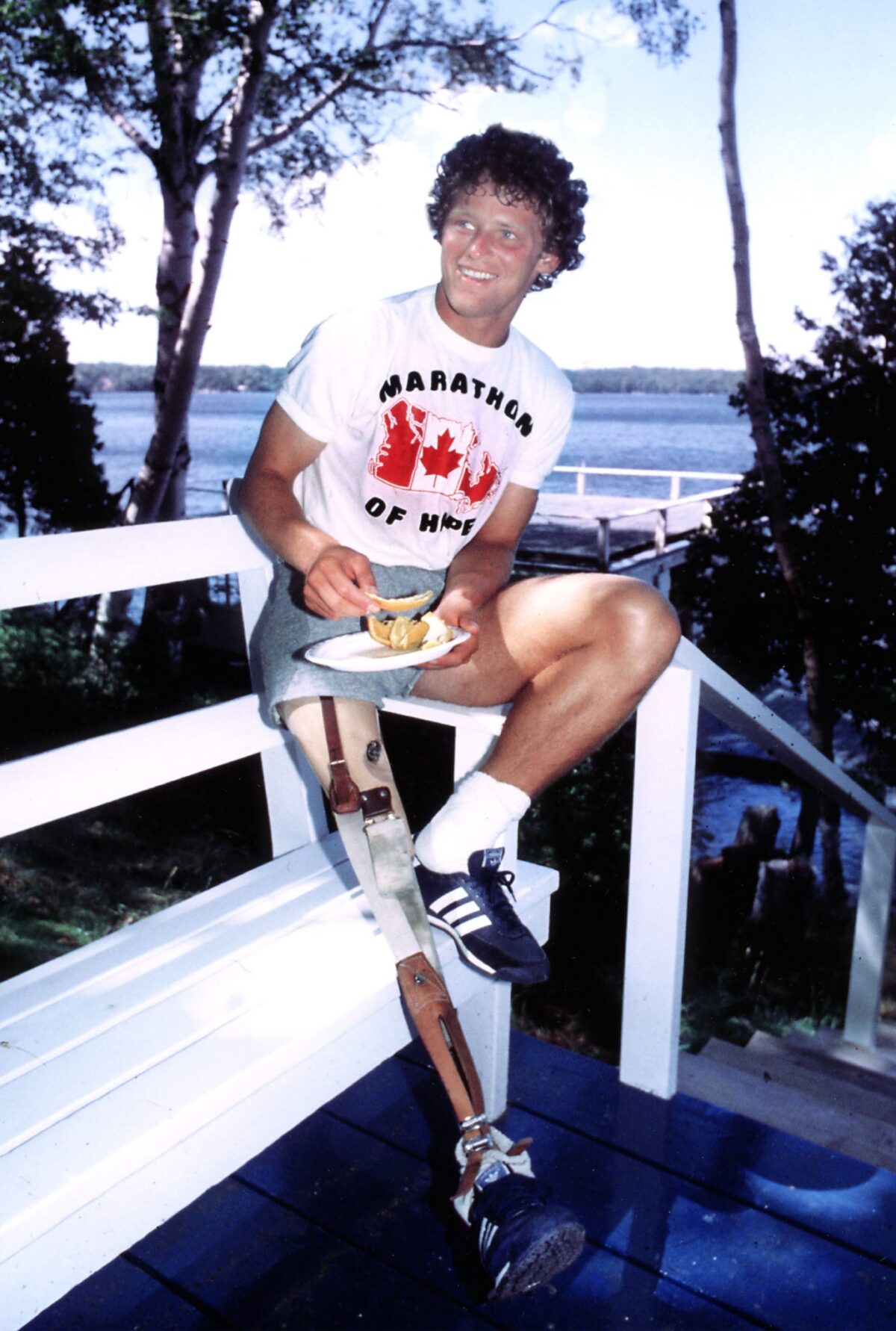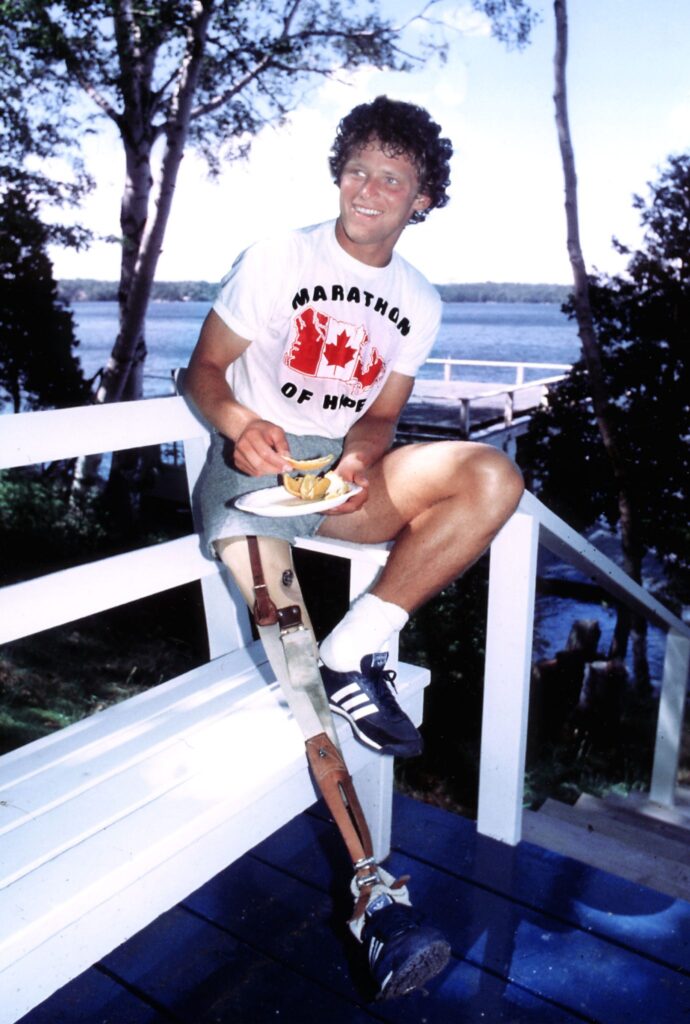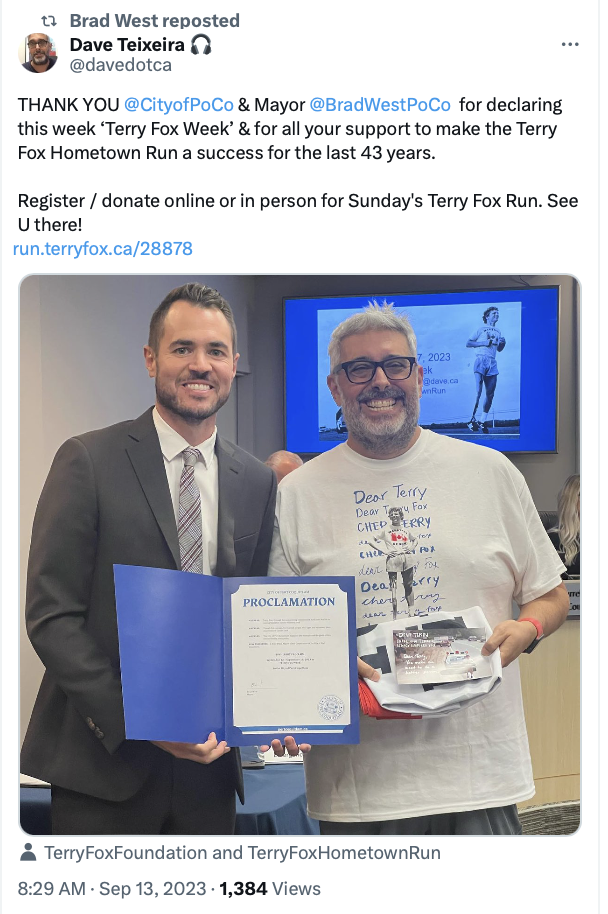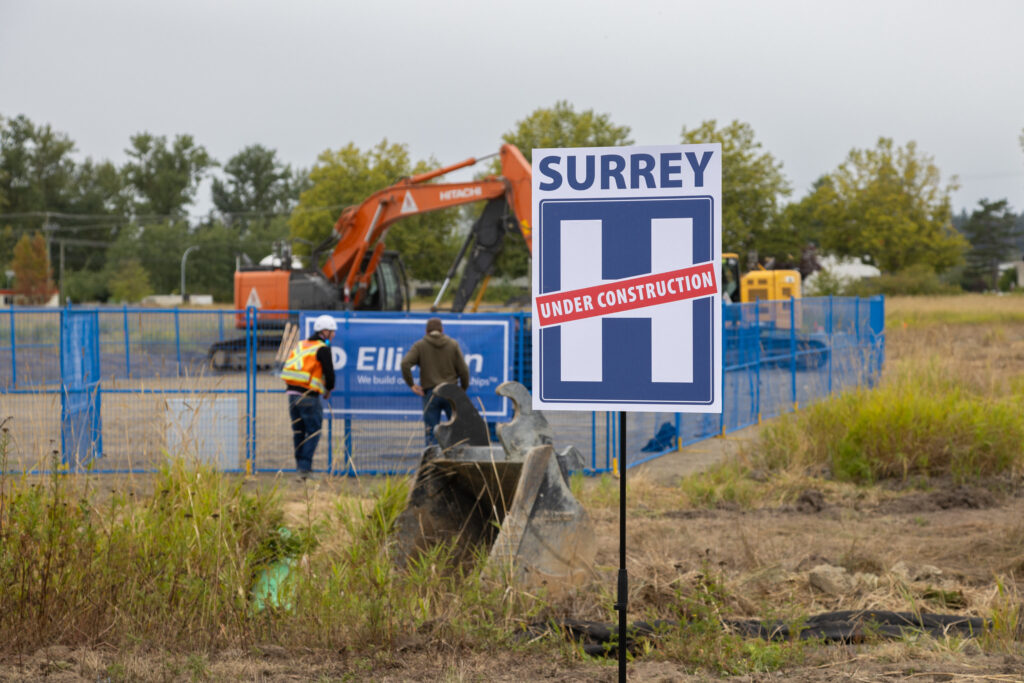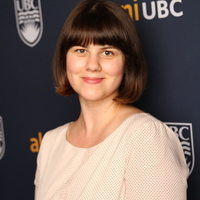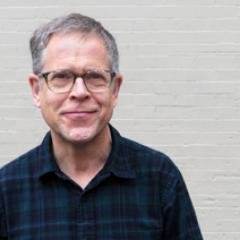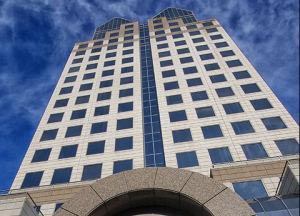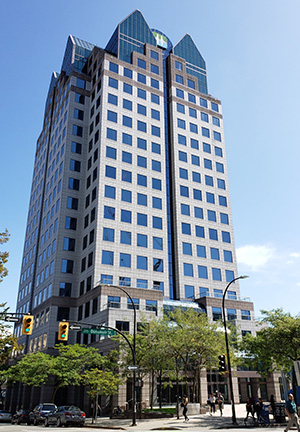Eby addresses Surrey hospital site photo op controversy
Bob Mackin
Premier David Eby tried to explain why construction seemed to be over as soon as it had begun on the site of the new Surrey hospital.

Premier David Eby and Surrey NDP MLAs on Sept. 12 at the new Surrey hospital photo op (BC Gov/Flickr)
Witnesses shot photographs on Sept. 15 of a crew hauling an excavator away, leaving an empty, fenced area where Eby, Health Minister Adrian Dix and six of the NDP’s Surrey MLAs posed in hardhats and turned sod on Sept. 12 in front of cameras. The event included signs that said the hospital was “under construction.”
“So we reached out, EllisDon had some heavy equipment on the site to do some pre-work. It was necessary, they needed the equipment somewhere else, they moved it,” Eby said to reporters in Richmond on Sept. 18.
“Today on the site, geotechnical work is going ahead, the hospital construction process is underway. The hospital will be built, and the commitment we have from the contractor under the contract is that construction will be complete by 2029. And I think everybody is looking forward to that, the people of Surrey that deserve and need health care, most of all.”
None of the equipment had returned to the site Sept. 18, but personnel from Pro-Tech Surveys, wearing hardhats and high visibility vests, were in the area with surveying equipment.
The hospital is scheduled to open in 2030 for $2.88 billion, two years later and costing $1.16 billion more than previously estimated.
Surrey Board of Trade has campaigned for better services at Surrey Memorial Hospital, which doesn’t have emergency facilities to treat heart attack, stroke or trauma patients. They are transferred elsewhere, mainly to Royal Columbian Hospital in New Westminster.
CEO Anita Huberman said healthcare needs to be depoliticized because it is a life and death matter for residents in Surrey who are being forced to wait longer for the new hospital. She is disappointed in the delay to 2030 and unhappy that construction did not really begin at the time the NDP said it had.

Excavator hauled away Sept. 15 from site of future hospital (submitted)
“Every single day construction costs escalate,” Huberman said.
When they were in opposition, the NDP criticized then-BC Liberal Premier Christy Clark and Environment Minister Mary Polak for holding a climate leadership plan news conference in August 2016 inside a warehouse, amid artificial greenery and a nature scene on a screen behind them.
“I’ve said repeatedly that this is an NDP government of flashy announcements, press releases, staged photos and endless re-announcements. Everything but actual results,” BC United leader Kevin Falcon tweeted. “British Columbians are taking notice of David Eby’s political theatre. They want action, not photo-ops.”
Healthcare is bound to be a ballot box issue for the next election, which must be held by October 2024.
Doctors held a protest on Sept. 9 outside Surrey city hall about delays and conditions at Surrey Memorial. Dix tried to get ahead of the story with a pre-emptive news conference at the hospital a day earlier, but said that demand for hospital treatment in B.C.’s second-biggest city is outstripping supply and that may be the “new normal.”
In May, Dix announced B.C. would send as many as 50 cancer patients weekly across the border to clinics in Bellingham, Wash. for radiation treatment under a temporary program.
Support theBreaker.news for as low as $2 a month on Patreon. Find out how. Click here.
Bob Mackin Premier David Eby tried to explain






